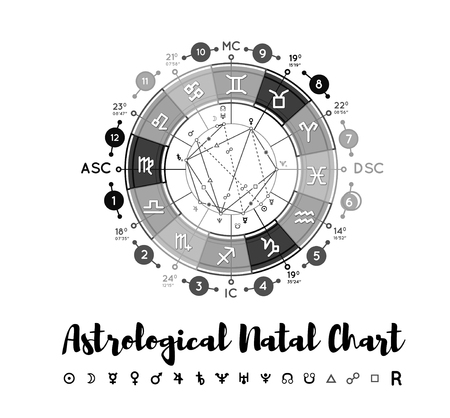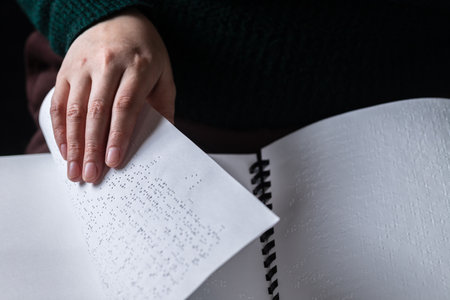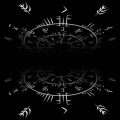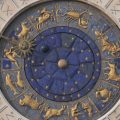Introduction to Birth Charts
If you have ever glanced at your horoscope in the back pages of a magazine or caught yourself wondering why you feel a certain way under the full moon, you are already touching upon the gentle world of astrology. A birth chart, sometimes known as a natal chart, is an intricate map of where the planets were positioned at the exact moment you came into this world. In British culture, astrology has quietly woven itself through our daily lives—from the friendly banter about Sun signs at gatherings to thoughtful musings over tea. While some may see it as light-hearted fun, others find genuine comfort and wisdom in the stars’ whispered secrets. Understanding your own birth chart is not simply about discovering which star sign you belong to; it’s an invitation to explore the subtle layers of your personality, emotional patterns, and even life’s recurring themes. By learning how to calculate and read your chart with practical steps tailored for a British perspective, you can begin to unlock meaningful insights that nurture self-awareness and personal growth—always with a gentle touch and open heart.
2. Gathering Your Essential Birth Details
Before you can begin unravelling the mysteries of your birth chart, it’s crucial to collect a few fundamental pieces of information. Your astrological blueprint is shaped by the precise moment and place you entered the world, so accuracy here matters. Let’s take a gentle, step-by-step approach to ensure you have everything in hand.
What You’ll Need
| Detail | Why It’s Important | Where to Find It (UK-specific Tips) |
|---|---|---|
| Date of Birth | The foundation for your Sun sign and planetary positions. | Usually found on your birth certificate or family records. |
| Exact Time of Birth | Determines your rising sign (ascendant) and house placements, making your chart uniquely yours. | If unsure, check your full birth certificate (often available from the General Register Office or local council). Family members, baby books, or hospital records can also be helpful. |
| Place of Birth | Your geographical starting point influences planetary calculations—longitude and latitude matter! | Note the town/city and country. For small villages or towns, use the nearest larger city if needed for online calculators. |
Tips for Finding Your Birth Time in the UK
- Full Birth Certificate: In England, Wales, Scotland, and Northern Ireland, the full (long-form) birth certificate typically includes your time of birth. If you only have a short-form version, you can order a replacement from the GOV.UK website.
- Family Memories: Sometimes parents or close relatives recall the time quite clearly—especially if it was an eventful arrival!
- Hospital Records: If you were born in an NHS hospital, they may still have records. Contact the relevant NHS Trust’s records department for help (note there may be an administrative fee).
- No Exact Time? If all else fails, try to narrow it down to morning/afternoon/evening or use 12:00pm as a neutral estimate—just remember this affects the accuracy of your ascendant and houses.
A Gentle Reminder
Your birth details are like keys unlocking your personal cosmic map. Taking the time to gather them with care ensures that every future step—whether calculating planets or interpreting signs—is rooted in clarity and authenticity.

3. Choosing a Reliable Birth Chart Calculator
Selecting the right tool to calculate your birth chart is a crucial step on your astrological journey. For those in the UK, it’s important to use calculators that offer accurate British time zones and city databases, as well as clear terminology suited to local readers.
Recommended Websites for UK Users
While there are countless birth chart calculators online, certain platforms stand out for their accuracy and accessibility. Astro.com (also known as Astrodienst) is internationally respected and offers comprehensive options for those wishing to enter precise birth details, including place and time zones for British locations. Another excellent resource is Café Astrology, which provides straightforward chart generation alongside helpful explanations of each element. For a more home-grown touch, The Astrology Podcast’s website often links to British-friendly resources, and The Astrology Shop London also offers tools tailored to the UK audience.
Terminology Tips for British Readers
When using these calculators, be mindful of certain terms. In the UK, “birth chart” is more commonly used than “natal chart,” though both refer to the same concept. Additionally, ensure you select “BST” (British Summer Time) or “GMT” (Greenwich Mean Time) as appropriate for your date of birth—this can greatly affect your chart’s accuracy. Many international sites default to US time zones, so double-check any automatic selections.
Settings and Customisation Advice
For best results, always input your exact birth time if you have it; even a difference of a few minutes can alter key placements such as the Ascendant or houses. When entering your birthplace, choose the correct city from the drop-down list rather than typing manually, as this helps ensure longitude and latitude are calculated correctly. If you’re unsure about daylight saving adjustments for your year of birth, consult the UK government website or reputable astrology forums for guidance.
By choosing a reliable calculator and setting it up with UK-specific details in mind, you lay a solid foundation for an insightful interpretation of your unique cosmic blueprint.
4. Plotting Your Planets and Houses
Once you have your birth chart details ready, it’s time to map out where each of your planets and star signs fall within the twelve houses. In British astrology, charts are often drawn as a circular wheel, divided into twelve segments—each representing a house that governs a particular area of life. This step may feel a touch technical at first, but with gentle attention, you’ll soon see the unique tapestry of your character unfolding.
Interpreting Planets in Houses
Your planets represent different facets of your personality—think Mercury for communication or Venus for love—and their placement in houses tells you where these traits are most likely to shine or be challenged. Here’s a simple table to help you understand what each house covers:
| House Number | Main Theme | Key Life Area (British Focus) |
|---|---|---|
| 1st | Self & Identity | How you present yourself; first impressions |
| 2nd | Values & Finances | Your approach to resources, possessions, and self-worth |
| 3rd | Communication | Day-to-day communication, local environment, siblings |
| 4th | Home & Family | Your roots, home life, and ancestry—think where you hang your hat |
| 5th | Creativity & Pleasure | Romance, hobbies, artistic pursuits (perhaps the British love of gardens or theatre) |
| 6th | Health & Service | Your daily routines, wellbeing, and work ethic (including that classic British keep calm and carry on attitude) |
| 7th | Partnerships | Relationships and close one-to-ones—be it marriage or business partners |
| 8th | Transformation & Shared Resources | Shared finances, transformation, intimacy (including inheritances and legacies) |
| 9th | Beliefs & Exploration | Travel, philosophy, higher education (the lure of the open road or academic debate) |
| 10th | Career & Reputation | Your public image and professional path—what you’re known for in your community or career sector |
| 11th | Friendships & Aspirations | Your social circles and hopes for the future (from mates down the pub to wider social causes) |
| 12th | The Subconscious & Endings | Your inner world, dreams, and spiritual growth—the quiet moments behind closed doors |
A Gentle Guide to Reading British-Style Charts
If you’re looking at a traditional British birth chart, remember: the Ascendant (or rising sign) always starts on the left side of the wheel—the 9 o’clock position—moving anti-clockwise through the houses. Place each planet symbol within its corresponding house segment based on your calculated positions. For example, if your Sun is in Gemini in the 10th house, this shines light on public recognition through quick wit or communication skills—a very British flair for conversation!
Treat this process as a gentle exploration rather than a strict science. Each placement offers insight into how you move through life’s everyday routines and special moments alike. Allow yourself time to reflect on each planetary position within its house: what does it reveal about how you navigate relationships, handle challenges, or find joy? The more thoughtfully you plot these points on your chart, the more nuanced your self-understanding will become.
5. Understanding the Meaning of Your Sun, Moon, and Rising Signs
As you gently unravel your birth chart, three placements stand out as the essence of your astrological blueprint: your Sun, Moon, and Rising signs. Each offers a softly insightful window into different aspects of your nature—and, when considered through a British lens, reveals intriguing ways these energies may find expression in daily life.
The Sun Sign: Your Core Self
Your Sun sign reflects the heart of who you are—your conscious self, sense of identity, and what truly motivates you. In British culture, where understatement is often prized over flamboyance, your Sun sign’s qualities might shine in subtle but steady ways. For example, a Leo Sun may radiate quiet confidence rather than overt showiness, perhaps leading a team at work with understated warmth and wit rather than seeking the limelight.
The Moon Sign: Your Emotional Landscape
The Moon sign is the guardian of your inner world—your feelings, instincts, and how you nurture yourself and others. In the UK, where keeping a stiff upper lip can sometimes be seen as admirable, your Moon sign’s emotional traits may surface in more nuanced or private settings. A Cancer Moon might express care by always putting the kettle on for a friend in need or creating a cosy home environment filled with comforting touches.
The Rising Sign: How Others See You
Your Rising sign (or Ascendant) shapes the first impression you give to others and often influences your style and approach to new situations. In British society, with its emphasis on manners and social graces, your Rising sign may colour how you navigate public life. A Libra Rising could excel at diplomatic small talk during gatherings or naturally foster harmony within diverse groups, reflecting the UK’s value on courtesy and community spirit.
Blending Your Big Three: A British Perspective
Understanding how your Sun, Moon, and Rising signs interact offers a holistic picture of your personality. Imagine an Aquarius Sun (innovative), Taurus Moon (steadfast), and Virgo Rising (practical): this blend might manifest as someone who champions creative solutions at work while quietly upholding tradition at home—all delivered with that quintessentially British touch of humility and dry humour.
Embracing Your Chart with Gentle Curiosity
As you interpret these primary placements within your own chart, invite gentle curiosity about how they inform both your inner world and outward presence. Remember, astrology is not about rigid definitions but about understanding the rich tapestry of who you are—expressed uniquely through both the stars above and the culture that shapes you here in Britain.
6. Delving Deeper: Aspects and Patterns
Once you’ve become familiar with your planets and houses, it’s time to explore the intricate connections between them—known as aspects—and the unique patterns these form across your birth chart. These cosmic conversations offer deeper insight into your personality and life path, much like the subtle threads in a tapestry that give it character and depth.
Understanding Planetary Aspects
In astrology, aspects describe the angles planets make with one another on your chart. The most commonly used are conjunctions (planets side by side), oppositions (directly across from each other), trines, squares, and sextiles. Each aspect has its own flavour: for example, a square might indicate internal tension or challenge, a bit like trying to navigate London’s bustling rush hour; whereas a trine is harmonious, flowing as smoothly as tea poured into your favourite mug. Start by noting which planets are closely linked—are they working together, or at cross-purposes?
British Examples to Guide You
If you spot a Sun-Moon opposition, imagine the classic British tug-of-war between head and heart—perhaps reminiscent of choosing between a practical job in the City or following your creative dreams in Brighton. Or if you have several trines, think of how easily certain traits or talents seem to come to you, much like picking up a new skill over Sunday roast with family.
Recognising Chart Patterns
Beyond individual aspects, some charts reveal larger patterns such as Grand Trines (a triangle formed by three planets), T-squares, or Stelliums (three or more planets in one sign). If you notice these patterns, they highlight key areas of focus or intensity in your life. For instance, a Stellium in Virgo might bless you with razor-sharp organisation skills—perfect for meticulously planning everything from holidays to home renovations.
Gentle Encouragement for Self-Reflection
Reading aspects and patterns isn’t about quick judgments; it’s an invitation to patient self-reflection. Don’t worry if it feels overwhelming at first. Take it slowly—perhaps jot down your observations over a cuppa. With time and gentle curiosity, you’ll start noticing how these celestial dynamics play out in your day-to-day choices and relationships, helping you to embrace both your strengths and challenges with compassion.
7. Next Steps: Resources and Reflection
Now that youve taken your first steps in understanding your birth chart, you might be wondering where to turn next. Astrology is a lifelong journey, and there’s a wealth of knowledge waiting for you—both within the pages of trusted books and amongst the vibrant communities right here in the UK. Let’s explore some avenues for deepening your astrological insight, all while honouring your unique pace and curiosity.
Quality Books to Begin With
If you enjoy learning through reading, consider starting with “The Contemporary Astrologer’s Handbook” by Sue Tompkins—a respected British astrologer whose clear explanations suit beginners and seasoned seekers alike. Another classic is “Astrology for the Soul” by Jan Spiller, which offers gentle guidance on understanding your North Node and life direction. For those wanting a more practical approach, “The Inner Sky” by Steven Forrest provides an accessible yet profound foundation in chart interpretation.
Online Communities Rooted in the UK
The world of astrology flourishes online, with supportive forums and groups tailored to British perspectives. The Astrological Association of Great Britain offers memberships, webinars, and local events where you can connect with like-minded souls. On social media, Facebook groups such as UK Astrology Enthusiasts or Astrology London welcome newcomers warmly—you’ll find discussions about both technical aspects and the everyday magic of star wisdom.
Workshops, Courses, and Further Learning
If you prefer hands-on learning, many UK-based astrologers host workshops throughout the year—look out for events in major cities like London, Manchester, or Edinburgh. Institutions such as the Faculty of Astrological Studies offer structured courses ranging from introductory to advanced levels, blending tradition with modern insights. These settings encourage questions and foster connections with fellow astrology enthusiasts on similar journeys.
Gentle Encouragement for Your Journey
Remember: astrology isn’t about finding fixed answers but about nurturing self-awareness and compassion. Take your time with each chart placement; let curiosity lead rather than pressure. Every new symbol or story you encounter adds another thread to the tapestry of your understanding. Trust that even small steps—like joining a community or picking up a book—are significant milestones along your personal path beneath the stars.
Your Cosmic Adventure Continues
No matter where you are in the UK—or indeed in life—the stars above shine equally for all of us. Embrace this exploration with an open heart, knowing you’re part of an ancient tradition that continues to evolve. May each discovery bring both insight and comfort as you journey forward under the ever-watchful sky.


